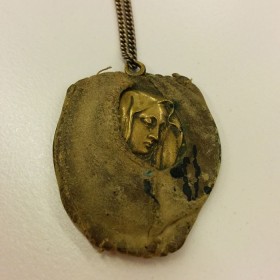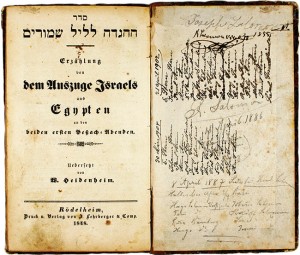At the Second Zionist Conference on 28 August 1898 in Basel, Switzerland, Max Nordau dedicated a passionate speech to the subject of muscular Judaism. The doctor, publicist and co-founder of the young Zionist movement said:

Herbert Sonnenfeld: Boxer portrait, Berlin 1935
© Jewish Museum Berlin, purchased with funds provided by Stiftung DKLB
“Zionism breathes new life into Judaism. This much I am sure of. It does this morally by refreshing the ideals of the People, physically by the physical education of our offspring, who shall reestablish a bygone muscular Judaism.”
This should therefore not only replace the widespread image of the weak Jew but also support the creation of a new, physically strong “Judaism.” It didn’t take long for this to be realized: just three months following Nordau’s address, the first Jewish sports association was founded in Berlin. It was named Bar Kokhba, after the leader of Judean Jewish resistance against Rome from 132-135 ACE. In a report titled, “Muscular Judaism,” for the new association newspaper, Jüdische Turnzeitung, Nordau described it as the “last, globally historic embodiment of a battle-hardened, weapon-ready Judaism.” He called on Jews to “connect with our oldest traditions: (Then) we’ll again be broad-chested, strong armed, bold-looking men.” → continue reading
An extraordinary gift

Medallion with the image of a saint © Jewish Museum Berlin, photo: Jörg Waßmer, gift of Fred Kranz
Last week, museum benefactor Fred Kranz accepted our invitation to participate in two workshops in our archives. He met with two classes of schoolchildren, one from Döbeln in Saxony and the other from Berlin’s Tegel district. It was the fifth time in recent years that Mr. Kranz – who was born in Berlin in 1938 – came back from the USA to speak to students and their parents about his life. The Kranz family, which consisted of Fred and his parents, survived the war living on a farm that belonged to a former employee of his father, in the village of Kallinchen on Motzener See (Lake Motzen) in Brandenburg.
In 2004, Fred Kranz donated a collection of documents and photographs to the museum that provide an impressive record of Jewish life in the years immediately following the war. During his most recent visit, he gave us a very special – a truly unique – object. Here is the story of this piece, in his words: → continue reading
A Newly Acquired Passover Haggadah and Its Previous Owners in Kreuzberg
Next week, the first Passover Seder will be celebrated on the evening of April 14. All over the world Jews will gather with their family and friends around festively decked tables and partake in the centuries-old tradition of reciting the Haggadah. Its text describes the story of the Israelites’ liberation from slavery in Ancient Egypt and sets forth the order of the evening.

“An Account of Israel’s Exodus from Egypt on the First Two Evenings of Passover,” published in Rödelheim near Frankfurt, 1848
© Jewish Museum Berlin, photo: Aubrey Pomerance
A Haggadah in an online auction recently caught my eye, and I managed to purchase it for a negligible sum for the Jewish Museum Berlin. Published in 1848 in Roedelheim near Frankfurt under the title Erzählung von dem Auszuge Israels aus Egypten an den beiden ersten Pesach-Abenden (An Account of Israel’s Exodus from Egypt on the First Two Evenings of Passover), the book contains the Hebrew version of the Haggadah text, along with its translation into German by Wolf Heidenheim. It is the twentieth edition of the Roedelheimer Haggadah that first appeared in 1822/23, there with the German translation in Hebrew characters. In 1839, the translation first appeared in Roman letters, as is the case with our new acquisition.
There is, to be sure, nothing remarkable about this edition from 1848. → continue reading


